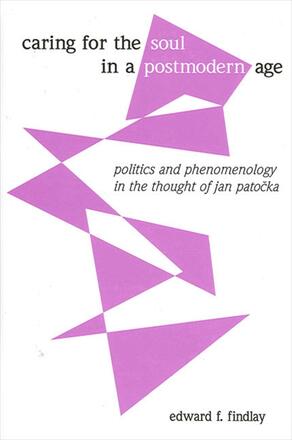
Caring for the Soul in a Postmodern Age
Politics and Phenomenology in the Thought of Jan Patočka
Alternative formats available from:
The first full exploration of the political thought of Jan Patocka, student of Husserl and Heidegger and mentor to Václav Havel.
Description
In 1977 the sixty-nine-year-old Czech philosopher Jan Patočka died from a brain hemorrhage following a series of interrogations by the Czechoslovak secret police. A student of Husserl and Heidegger, he had been arrested, along with young playwright Václav Havel, for publicly opposing the hypocrisy of the Czechoslovak Communist regime. Patočka had dedicated himself as a philosopher to laying the groundwork of what he termed a "life in truth."
This book analyzes Patočka's philosophy and political thought and illuminates the synthesis in his work of Socratic philosophy and its injunction to "care for the soul." In bridging the gap, not only between Husserl and Heidegger, but also between postmodern and ancient philosophy, Patočka presents a model of democratic politics that is ethical without being metaphysical, and transcendental without being foundational.
Edward F. Findlay received a Ph. D. in Political Science from Louisiana State University.
Reviews
"…Caring for the Soul in a Postmodern Age … is the first introduction to Patocûka's work written in English. As such it is to be welcomed. " — Radical Philosophy
"A superb book. Findlay's treatment makes an excellent case to give Patocûka's thought a serious reading in the present day, given its unusual station as lying both in between various positions generally taken to be mutually opposed to each other, and in its earnest effort to integrate the best of each and move beyond the limits of both. Socrates, Plato, and Aristotle get unified in terms of the fundamental inspiration of European philosophy—'care of the soul'—while in the context of the social and political (not to mention philosophical) founderings that have characterized the twentieth century. " — Ronald Bruzina, translator of Sixth Cartesian Meditation: The Idea of a Transcendental Theory of Method by Eugen Fink